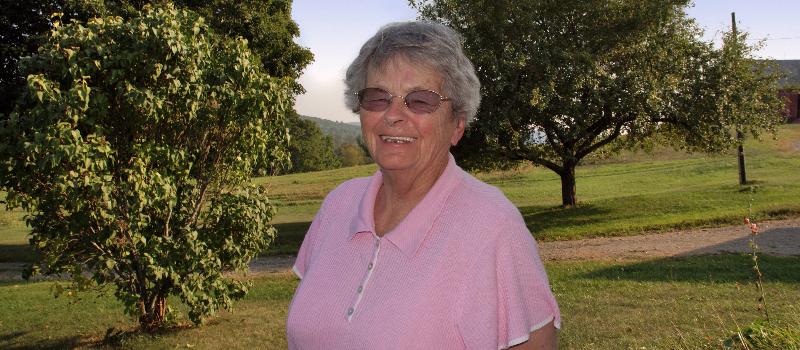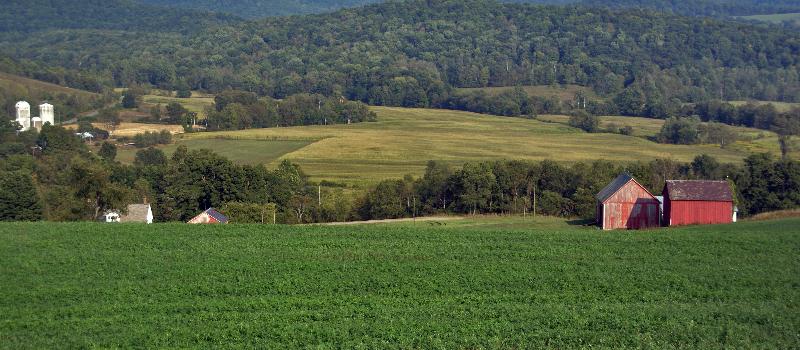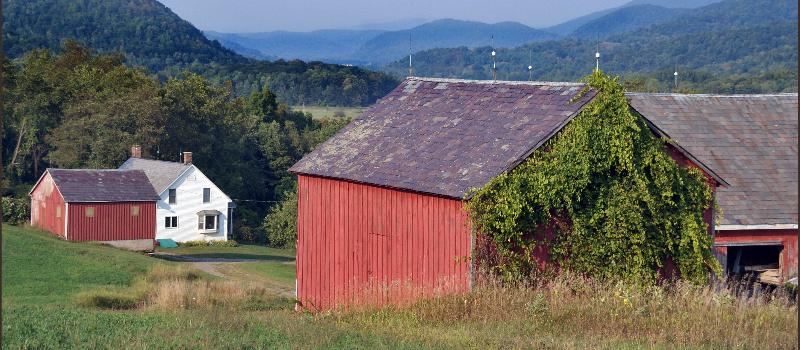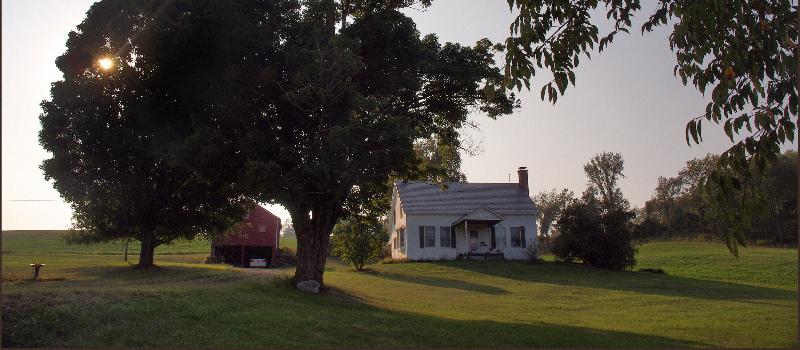145 ACRES PROTECTED IN SALEM
“If Evelyn said the farm dates back to the Revolutionary War times, believe her.”
That was the response I received from the town historian when I questioned him about the age of Evelyn Braymer’s farm. The 145-acre farm on County Route 153 in Salem sits on a hill overlooking farm fields in all directions. The barns on her property date back to the 18th century and were likely built around the time of Salem’s founding in 1761. She has an astounding memory of life growing up with farming in Washington County as well as many insightful things to say about the state of agriculture today.
Evelyn was born in 1929 and grew up on her parents’ farm on nearby Beattie Hollow Road. In 1947 she and her husband began farming on the property where she now lives. This farm was a special piece of land to the Braymers for many reasons. Not only was it close to the village of Salem, and therefore the milk market (via train), it also represented a financial victory for a family determined to stay in the dairy business.
Evelyn’s husbands’ parents had moved to the property in 1928 after selling their farm in Pawlet, Vermont, but were forced to sell again a year later with the onset of the Great Depression. They continued to rent the farm until 1947, when Evelyn and her husband were able to buy it back at the end of World War II.
“That was a whole different era,” Evelyn remembers. With the war came a need for increased production. President Roosevelt’s Farm Policy encouraged new farmers while companies such as H.P. Hood and Sons, where Evelyn and her husband shipped their milk, held community picnics as incentives.
It’s hard to imagine now, but during the war, families were rationed to two gallons of gas per week. Farmers received slightly more, but most still relied heavily on horses to plow their fields. With the end of the war, horse-drawn farm implements were replaced by mechanized equipment and small, homestead farms went out of business as large dairies became popular.
The Braymers stayed relatively small, milking about thirty cows, although they also raised over two hundred chickens. In those days, H.P. Hood would pick up the eggs right along with the milk. Evelyn worked with her husband driving tractors, feeding calves, and baling hay. For one year, when her husband got sick, she ran the farm all by herself, milking and feeding the cows twice a day before going inside to take care of her small children. “I was proud,” she remembers with a smile, “because I made more milk than my husband did that year.”
In the 1980s the Braymers were faced with a tough decision. One of her sons wanted to continue farming, but it was impossible to support two families on the small farm without expanding. They decided to sell the cows and rent their land to another local farmer who had been a neighbor for generations.
“It matters very much to me,” Evelyn says about conserving farmland. “I guess you could say I love agriculture. Whether it’s my farm or someone else’s, I love it.”
“You have to put land aside for agriculture,” she explains, “because the demands of somebody wanting a summer home sometimes takes up farmland…and then that farmland will never yield anything, will never go back.”
Evelyn, who began plans to conserve the farm in 2004, also inspired her neighbor Bob Beattie (now deceased) to conserve his 300-acre farm. Both farms lie within a few miles of other protected properties which together comprise 1,233 acres of protected land along County Route 153.





